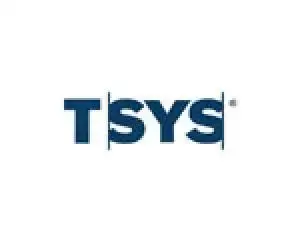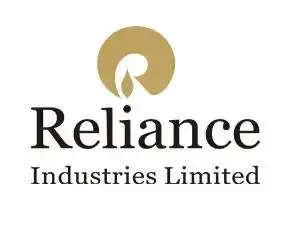
Get a Quote
Get a Quote and Find Services to Fit Your Needs 50000+ Satisfied Clients
5000+ Licenses & Registration
15 Branches across India
75 Years + Combined experience
If you want your company's IPO to be launched, connect with Registrationwala for IPO consultation. Our IPO consultants will help you throughout the IPO process, from filing your application with SEBI to helping you to register with the stock exchange.
Satisfied Clients
Services
Years Combined Experience
Get Started!

























IPO full form is Initial Public Offering. IPO refers to the first-ever share of a company to the general public. Many companies launch their IPOs in order to raise funds for business expansion. If you want to raise funds for your company, you can consider an IPO launch. The funds acquired by launching an IPO can be utilized by your company to purchase equipment, pay off debts, and improve the infrastructure. You can take your company to new heights.
However, launching an IPO isn’t easy. It requires a lot of paperwork and approval from SEBI. Therefore, it is important to seek professional guidance from an IPO consulting firm. During the IPO consultation, our IPO consultants at Registrationwala will not only explain the entire IPO process but also assist you throughout it, increasing your chances of getting listed.
 (1).jpg)
IPOs come in two varieties: SME IPOs and Mainboard IPOs.
1. SME IPO: SME IPO full form is Small and Medium Enterprises Initial Public Offering. This IPO is launched by small to medium-sized businesses seeking to raise capital. The post-issue paid-up capital for an SME IPO cannot exceed Rs. 25 crore.
2. Mainboard IPO: This IPO occurs when a privately owned company sells its shares to the general public for the first time and gets listed on the stock markets. Large companies with major operations and financial standing go for mainboard IPO. The post-issue paid-up capital requirement for mainboard IPO must be at least Rs. 10 crore.
Depending on the size of your company, you must go for either an SME IPO or a Mainboard IPO.
SEBI has set the eligibility criteria for IPO application. This eligibility criteria must be met by the applicant in order to be eligible for IPO listing on stock exchanges in India:
The applicant entity must prepare the list of the following mandatory documents for IPO registration.
For assistance in the preparation of the above-mentioned documents for IPO, reach out to our Mainboard or SME IPO consultants at Registrationwala.
.jpg)
To begin the IPO process, the company must take assistance from financial experts, such as merchant banks and investment banks. These experts will ensure the company regarding the capital being raised and serve as intermediaries between the company and the investors.
Additionally, they will study the company’s crucial financial parameters and sign an underwriting agreement containing details of the deal, the amount to be raised, and information regarding securities being issued.
This step involves the preparation of all the relevant documents, including the red herring prospectus. This prospectus is a mandatory document under the provisions of the Companies Act. It is a document that contains all the mandatory disclosures in accordance with SEBI and the Companies Act.
The key components that make up red herring prospectus are: definition of industry-specific terms, business and financial descriptions, disclosure of risk factors, disclosure of how the money raised from investors will be utilized, industry segment of the company, legal information, etc. This prospectus has to be submitted to the RoC at least three days before the offer is opened to the public for bidding. Once submitted, an application can be filed for IPO with SEBI.
Once the IPO application has been filed, SEBI will carefully examine this application and verify the disclosure of facts by the company. If SEBI is satisfied with the application, it will be approved. After this, the date for IPO launch can be announced by the company.
Once SEBI has given the required approval, the company must make an application with the stock exchange so that the floating of the initial issue can take place.
Now, the company can initiate IPO pricing through fixed-price offerings or book-building offerings. In a fixed-price offering, the company stock’s price is announced in advance.
In a book-building issue, a price range of 20% is announced, and the investors can place their bids on shares within the price bracket. Only once the bidding is closed is the final price decided. The booking is generally open for 3-5 working days, during which the investors can revise their bids within the stipulated time if they want. Once this bidding process is completed, the company determines the final price at which the issue will be sold.
After the finalization of IPO price, the company along with financial experts will determine the number of shares which are to be allotted to each investor. Partial allotments will be made in case the IPO is oversubscribed. Generally, the investors receive the IPO stocks within 10 working days of the last bidding date but it may take longer.
Launching an IPO can be complex and time consuming. A lot of paperwork is required. To ensure the IPO process takes place smoothly and the IPO application is filed in a correct manner, working with seasoned IPO consultants in India is crucial.
Registrationwala provides best IPO consulting services to companies who want to launch IPOs. By allowing us to assist you in the IPO registration process, your chances of IPO approval will be increased. We will guide and assist you throughout the entire process of IPO registration and will help you to prepare all the necessary documents.
On your behalf, we will coordinate with SEBI and stock exchanges to ensure that the IPO application process is going smoothly. In case of any doubts or queries, we will be glad to assist you during the IPO process and even after your company’s IPO has been launched successfully. Don’t wait! Connect with Registrationwala and avail our impeccable IPO services now!
Q1. What is the full form of IPO?
A. The full form of IPO is Initial Public Offering.
Q2. How is an IPO different from an FPO?
A. IPO happens when a company goes public for the first time. Follow-on Public Offering, or FPO, occurs when a company has already previously launched its IPO and is listed on the stock exchange.
Q3. Where to file an IPO application?
A. The application for IPO must be filed with the Securities and Exchange Board of India (SEBI). Once approved, an IPO application must be filed with the stock exchange.
Q4. What is the role of a merchant banker in the IPO process?
A. A merchant banker ensures that the company’s IPO complies with all the regulatory and legal requirements.

★ ★ ★ ★ ★
I very much appreciate the fact that you guys possess tremendous knowhow of private limited company incorporation. You have exhibited professional and respectful manner towards my query and I would seriously recommend you guys to all the folks looking for outstanding business services.

★ ★ ★ ★ ★
Thanks to their support, I got my trademark successfully. I highly recommend their services for anyone needing help with their intellectual property. The person assigned to me was very cooperative and helpful.

★ ★ ★ ★ ★
Thanks to their support ragistrationwala team, I got my IP-1 license successfully and special thanks to Miss.Kanishka for your great and timing support !!!!!! I have archived my goal one step forward... Thanks for the entire team....

★ ★ ★ ★ ★
Really helped a lot in getting my both VNO licenses. Great experience working with the team and very humble team, thanks for providing the vno license on time.

★ ★ ★ ★ ★
I had a good time working with Registrationwala. Good team. I would recommend their services to others.

★ ★ ★ ★ ★
It was extremely great service of Registrationwala consulting firm, and this firm is providing the best services and worry about the client's required services along the client's satisfaction.

★ ★ ★ ★ ★
Superb Experince! Within no time the trademark registration was on.Highly professional team. I am very much Impressed with the prompt response and efficiency.Thank you.

★ ★ ★ ★ ★
We had taken ISP license from registration wala and the supporting person is very helpful to taken that license his communication and his work is satisfactory and thanks for those services

★ ★ ★ ★ ★
I sincerely appreciate your prompt support in helping me get the access license so quickly. Your professionalism and efficiency are truly commendable. Thank you for going above and beyond to assist me. Keep up the great work!